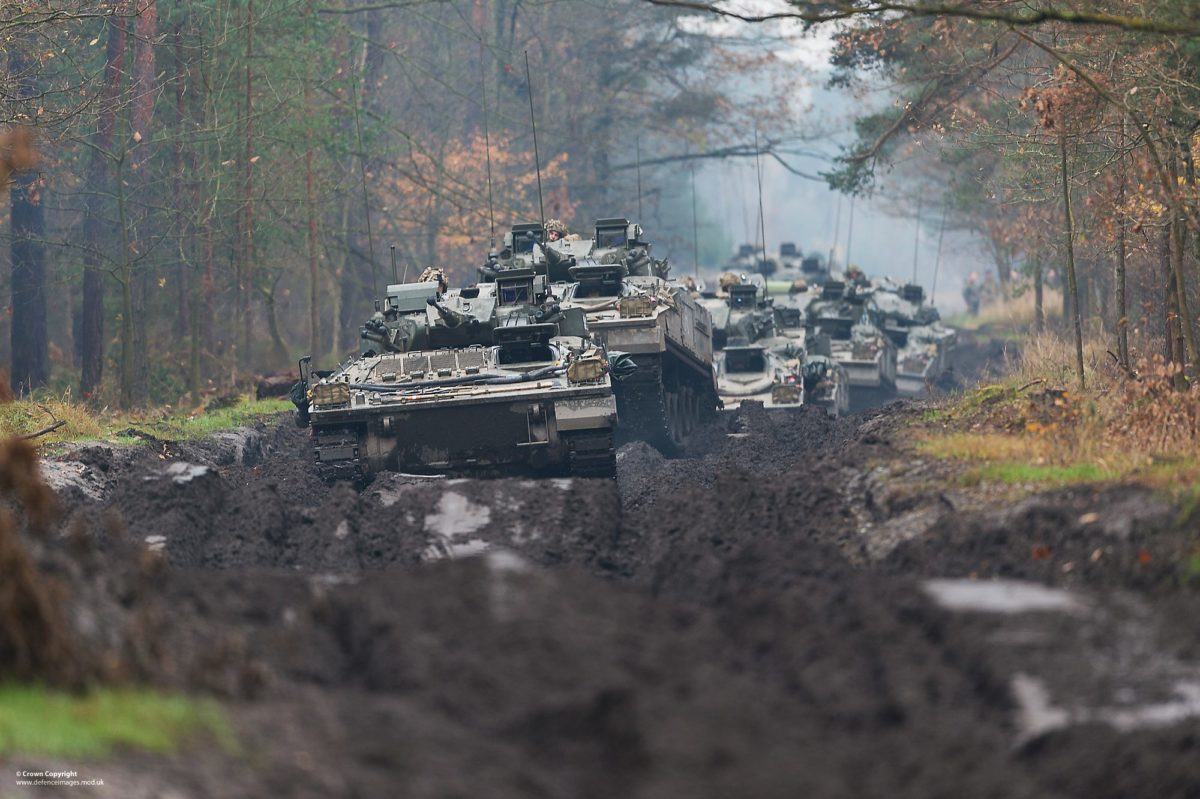Why are the UK armed forces helping Poland build a Trump-style wall on the Belarusian border?
Ben Wallace, the Defence Secretary, says Royal Engineers will assist with ‘specific engineering tasks’

The British Conservative Party has a long-standing relationship with Poland’s far right party, Law and Justice. In 2009, fulfilling a pledge he made during the Conservative leadership contest to win the eurosceptic vote, David Cameron took the party out of the centre-right alliance, the European Peoples Party – a move condemned at the time as ‘dotty’ by mainstream Conservatives. To this day, the shift is seen by many commentators in Brussels and across Europe, as a central marker post on the UK’s populist march to Brexit.
The Conservatives formed a new alliance with various far right and eurosceptic forces – the most prominent of which was Poland’s Law and Justice party, who are today involved in a major conflict with the EU over their attack on the independence of the judiciary. Post-Brexit the Conservatives maintain these links, working in alliance with Law and Justice at the Council of Europe, a relationship that has been strongly criticised by Polish anti-fascists.
To a large degree, this should not come as a surprise. The UK government are natural allies of the Polish far right. Much of their domestic agenda, from moves to curtail judicial review, attack the right to protest and the principle of refugee protection, shares very close affinities with the outlook of Poland’s Law and Justice government.
Building a Trump-style ‘wall’ in Poland
Now, the UK has dispatched 140 troops from the Royal Engineers to assist the Polish government’s attempts to keep out vulnerable migrants seeking to resettle in the EU. The UK government have described it as a ‘civilian’ deployment providing engineers to assist with ‘infrastructure, roads and planning’.
And what infrastructure project is the Polish government undertaking at the border, requiring assistance? They are pushing ahead with controversial plans to build a Trump-style wall, with motion scanner and video monitoring systems, stretching across its 250-mile border with Belarus, at a cost of €353 million. Given that some estimates for the number of people at the border have been as low as 2,000, this may be equivalent to a stunning €176.5k per migrant – resources that could be put into providing humanitarian resettlement support, not border fences.
Britain will be shamefully supporting this effort to keep out refugees and migrants seeking to build a new life in the EU. In a written statement to the House of Commons, Defence Secretary Ben Wallace, said that UK engineers will remain in Poland until the end of April next year to carry out ‘specific engineering tasks’.
So, the case is an example of the new ‘far right internationalism’. In this warped political model, authoritarian and racist domestic policy, like the Nationality and Borders Bill, goes alongside developing international co-thinkers for these policies, up to and including providing practical assistance for their implementation.
December 12, 2021
Brexit Spotlight is run by Another Europe Is Possible. You can support this work by joining us today. The website is a resource to encourage debate and discussion. Published opinions do not necessarily represent those of Another Europe.





